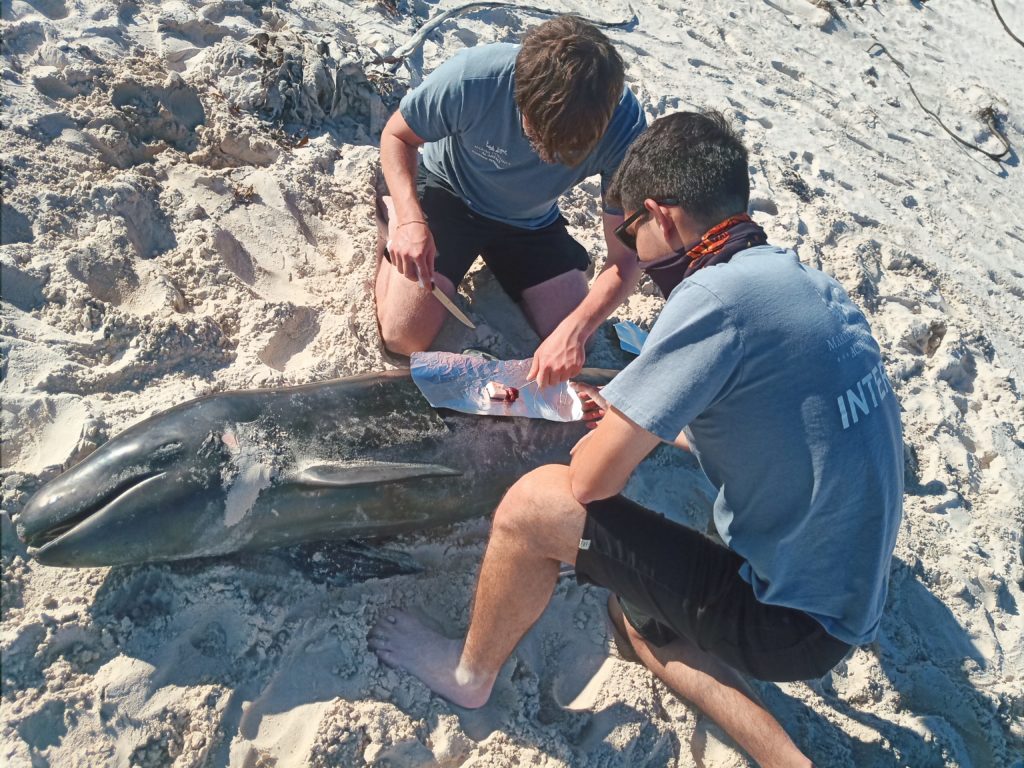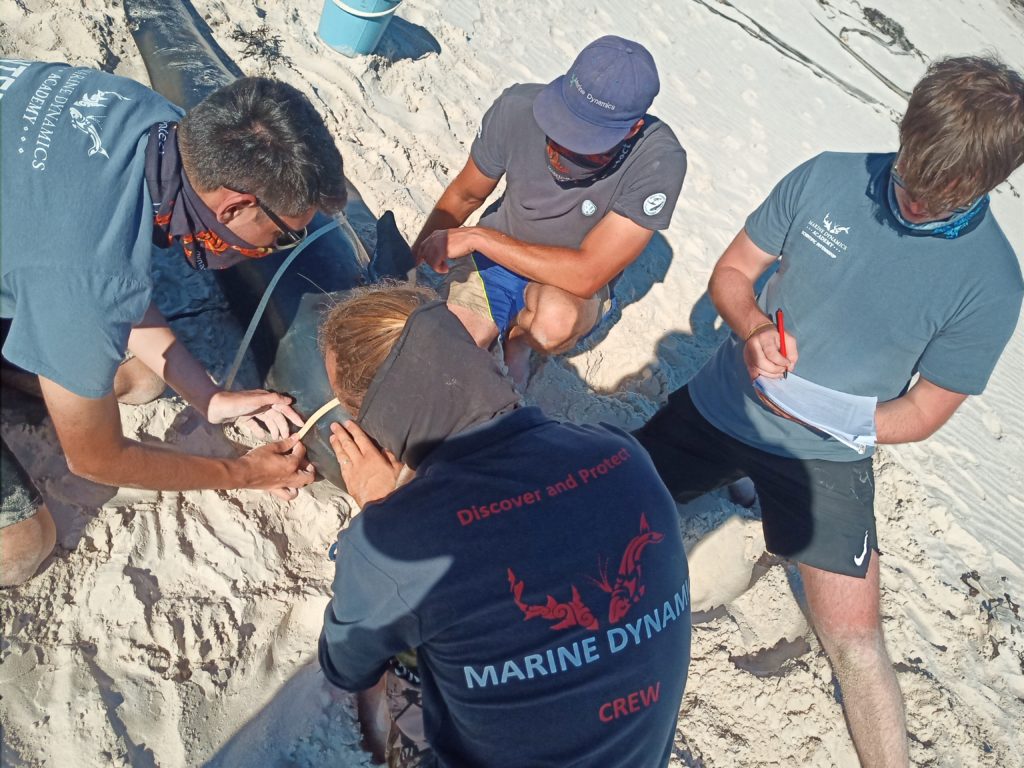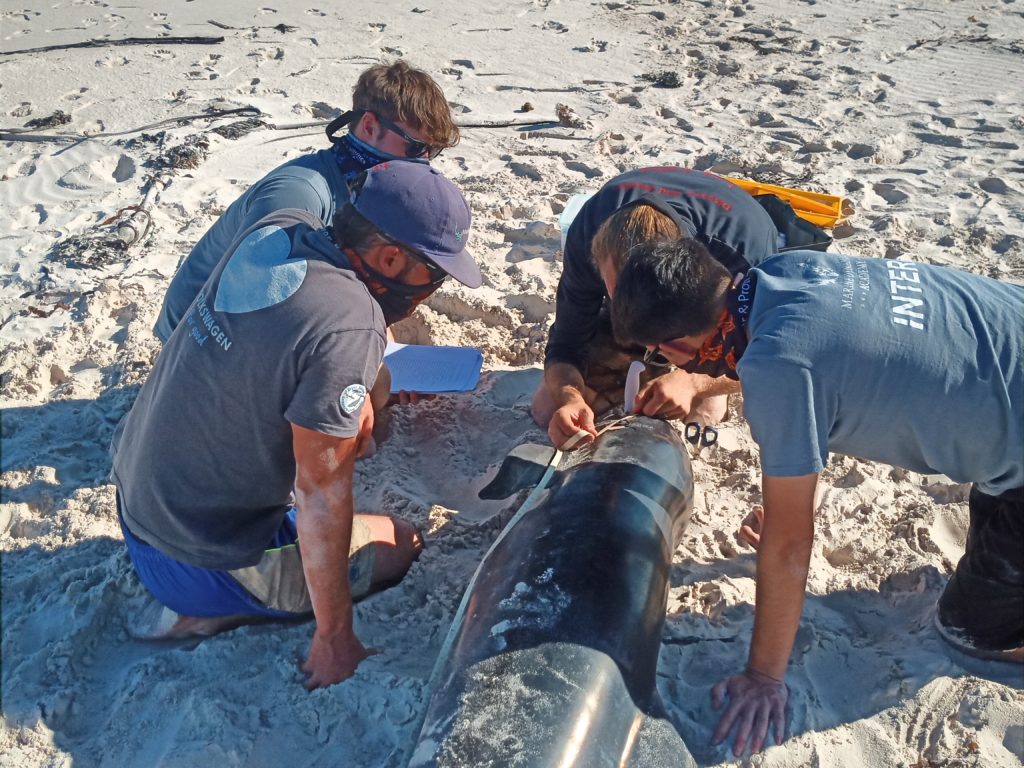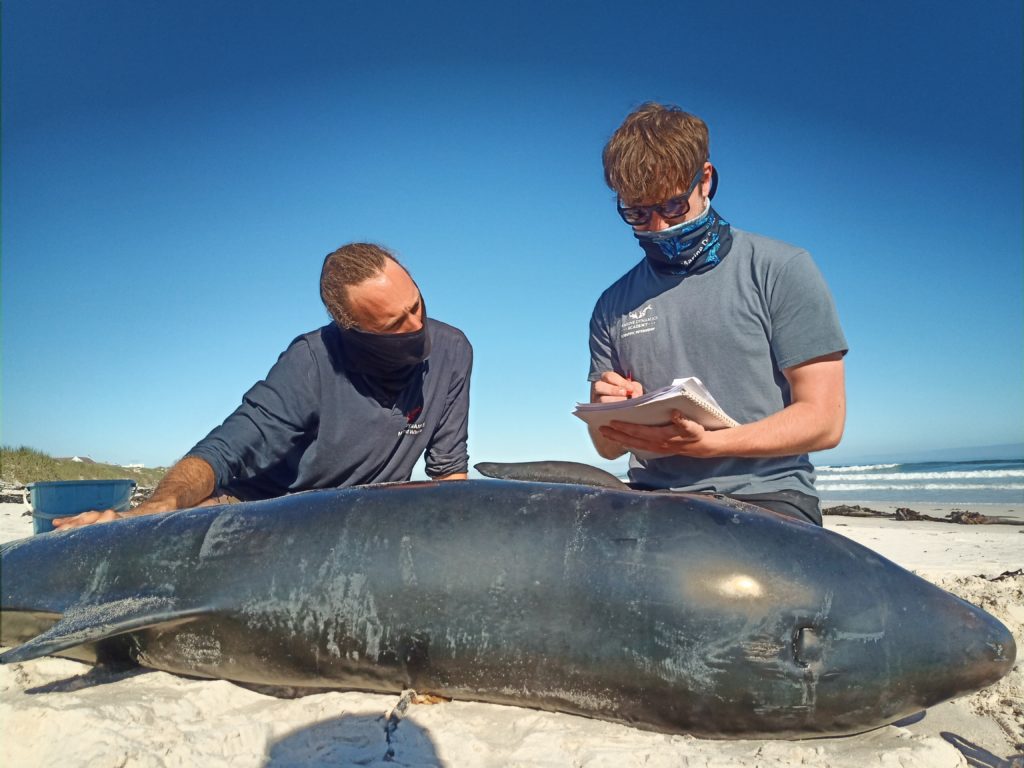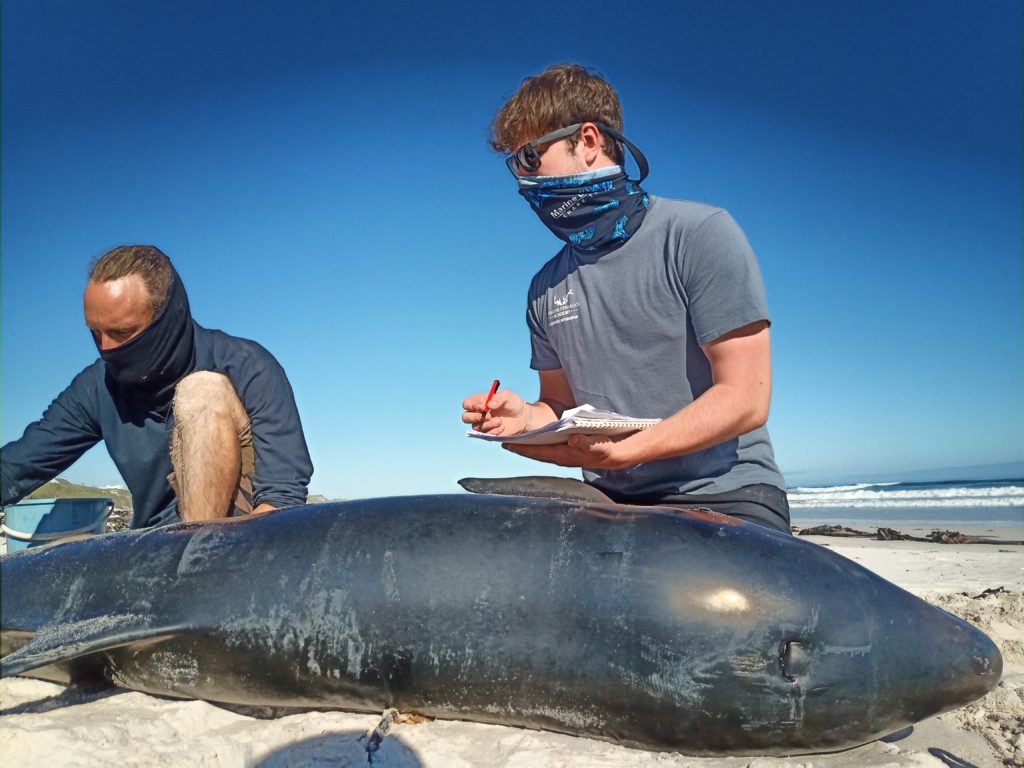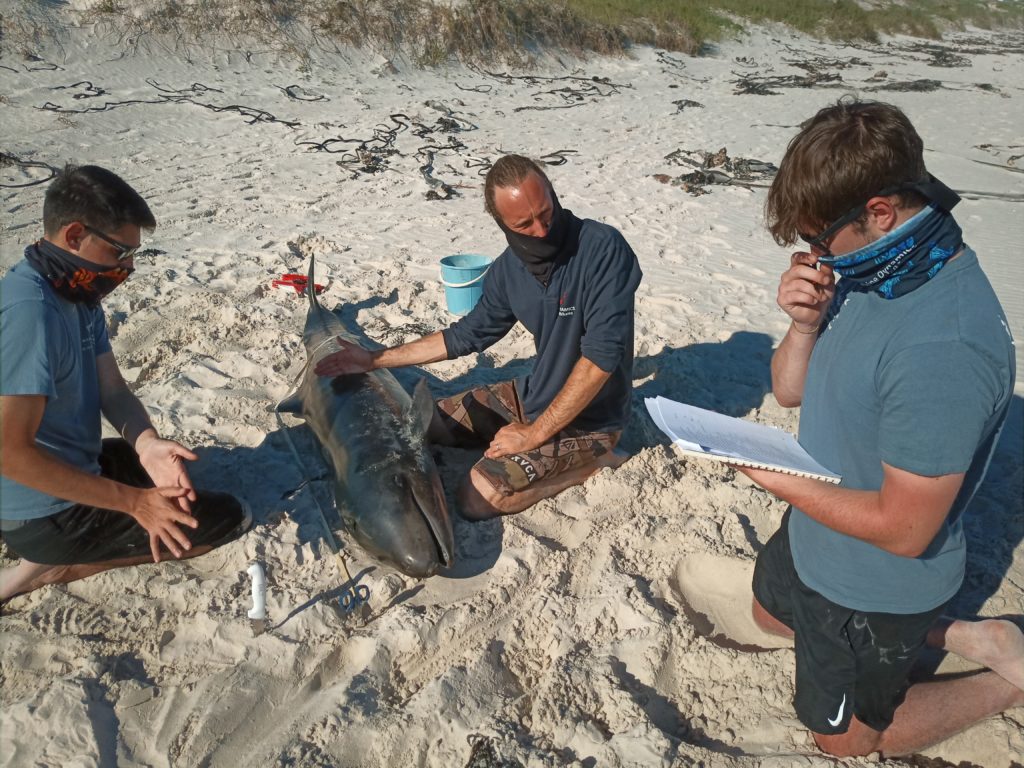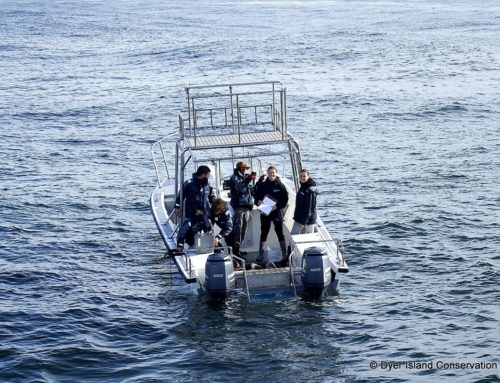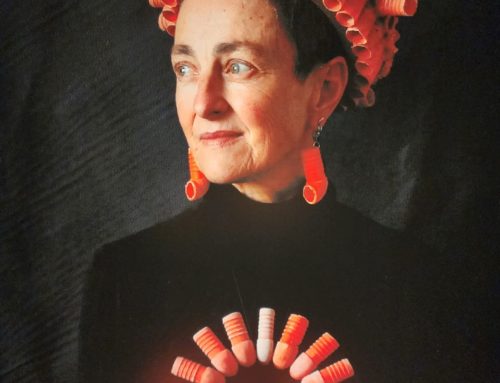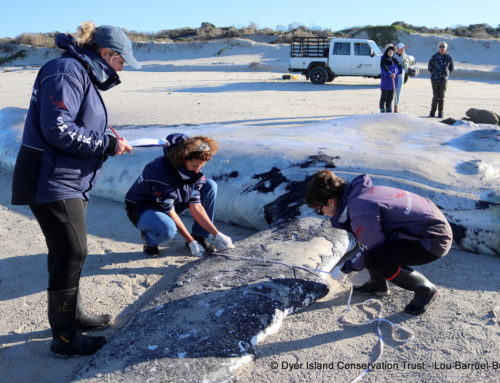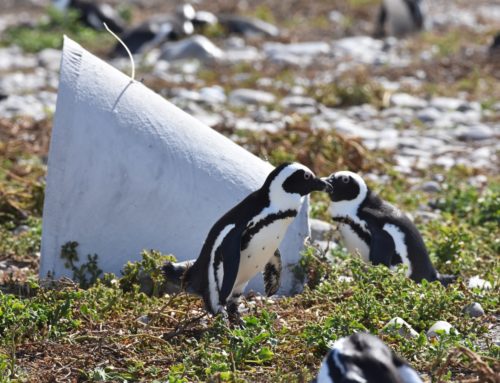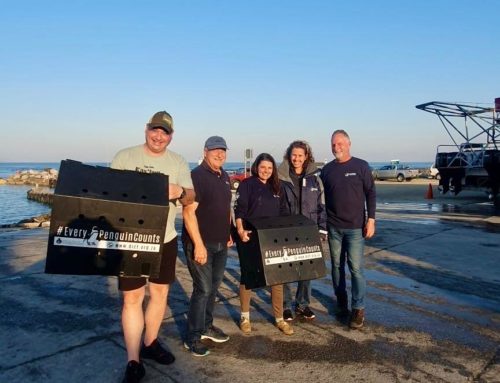On Friday the Dyer Island Conservation Trust received a call of a whale stranding in Pearly Beach. They quickly dispatched marine biologist Ralph Watson with two interns from the Marine Dynamics Academy to investigate the deceased animal. Once on site they joined African Penguin and Seabird Sanctuary’s Senior Bird Rehabilitator Xolani Lawo who was already on site.
While in contact with the Whale Unit in Hermanus, they determined it to be a female baby false killer whale (Pseudorca crassidens). These animals can be found mostly in tropical and semitropical oceanic waters, between 50°N and 50°S, and in South African waters they’re seen mostly in waters deeper than a 1000 meters. While the false killer whale eats primarily squid, this one was still a suckling, as its teeth had not broken through its gums yet. Initially described based on fossil records, and thought to be extinct until the first carcass washed up in 1861, they got their name based on the skulls similarity to orcas.
The DICT team took full measurements of the animal, and important skin, blubber and muscle samples. While false killer whales can get up to 5 meters long, this baby was only a few centimeters over 2 meters. A sad event but perhaps the samples might reveal the cause of death or at least add to our understanding of this species.
The next morning the animal was removed by the Overstrand municipality.
